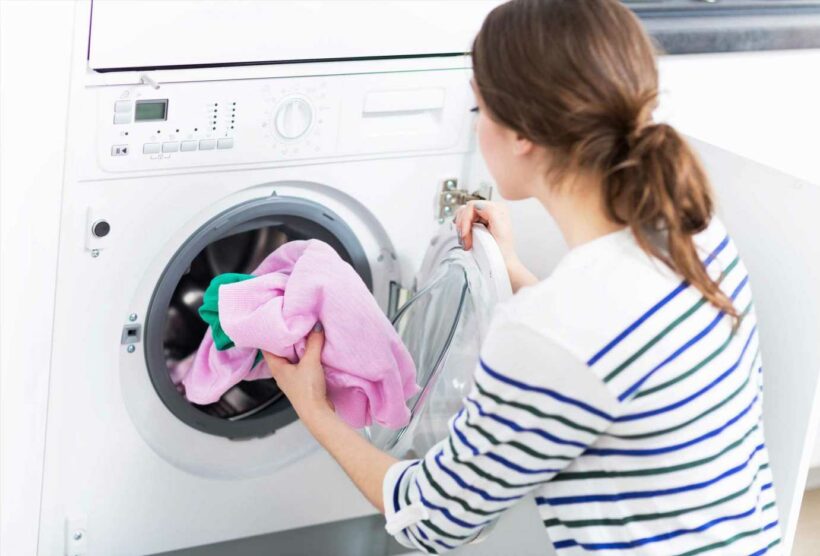ENERGY bills are rocketing and millions of households are making an effort to cut their usage and keep costs down.
One way of doing that could be choosing the cheapest time to do your laundry – if you're on the right tariff.
Usually the cost of gas and electric is the same, so putting a washing machine or tumble dryer on in the day or at night won't change that.
But there are special tariffs where you pay a cheaper price for energy in the night compared to the day.
These time-of-use tariffs could slash your bills by as much as £120 a year.
Savvy saver Scott Dixon told The Sun how washing his clothes at night helps him save a whopping £725 a year.
Read more on bills
You’ve been using your kettle wrong – and it’s adding £87 to your energy bill
The exact temperature to set your thermostat to save on energy bills and stay warm
That's only the case though if you're able to do this and it might not suit everyone's lifestyle.
Plus, you should be careful of running appliances overnight when you're asleep as it can be a fire risk.
Economy tariffs – how do they work?
Time-of-use tariffs are usually called Economy 7 or 10 tariffs, or "differential" or "multi-tariff rate".
They can be a cheaper energy option than other price plans because you’ll commit to using most of your energy at night.
Most read in Money
PAY RISE Full list of benefits rising in April – including Universal Credit
All the benefits rising for parents from Monday – when it will hit bank accounts
You’ve been using your kettle wrong – and it’s adding £87 to your energy bill
Flat in the heart of London is £1,100 a month – but it's tough to get to bed
This means you can get a good discount for the units you use during the off-peak hours.
These tariffs are best suited to people with storage heaters and a hot water tank, which can be heated up at night when it’s cheapest and then used to provide hot water and heating for the next day.
A lot of modern appliances also include a timer, so you can set your washing machine and dishwasher to run during the off-peak window.
It’s called an Economy 7 tariff because the off-peak window is usually a seven-hour period, usually between midnight and 7am – but this can vary depending on your provider, location and the time of year.
Here's all the suppliers offering cheaper energy at night.
How much could I save?
If you run your washing machine at night on an economy 7 tariff, it could cost just 60p compared to 88p on a standard tariff – a saving of 28p.
Assuming you did two washes per week, you would save £29 a year, figures from Uswitch show.
But if you run it during the day on an economy 7 tariff it would be more expensive, costing 93p per 90 minute cycle.
The actual amount you'll save depends on your supplier, the rate they give you, where you live and the washing machine you have.
So running it on an Economy 7 tariff could lead to even bigger savings.
Don't forget that if you use the appliances in the day time, you'll end up paying more.
More ways to save on your laundry costs
You could also reduce the cost by doing an extra 10 minute spin in the washing machine to get it more dry beforehand.
Will Owen, energy expert at Uswitch.com, previously told The Sun that tumble dryers are one of the most energy intensive devices in the home.
Owen said: "The longer your tumble dryer’s cycle, the more money it will cost you.
If your clothes are dripping wet, it will have to run much longer to get them dry, increasing your energy bill dramatically.“
Also keep in mind that overloading the drum is likely to put your machine under strain and end up costing you more in the long run, while underloading the device will waste energy.”
Energy experts at Energyhelpline estimate that a tumble dryer uses around £1 worth of electricity per cycle – but a washing machine uses only around 15p.
Turning down the cycle heat, or just giving your tumble dryer a good clear out could aid in reducing your bill.
Following the steps should knock the annual cost down to around £60 on average, and they are simple enough changes to make everyday.
Lisa Barber, Which? home products and services editor, said: “One of the easiest things people can do is to reduce washing machine temperatures, as switching to 30°C could save £13 in annual costs, while 20°C could cut £24.
“Maintaining your tumble dryer could trim your bill, as filters blocking up with dust and lint from clothes can add nearly £20 to annual laundry costs.
Read More on The Sun
Pregnant mum ‘screamed for help to get her kids, 3 and 5, out of burning home’
I was sexually harassed by Jimmy Savile live on TV – it turned my stomach
“Making the switch to a Which? Best Buy detergent could also save people close to £50 a year, with some cheap Best Buys costing as little as 7p per wash."
Meanwhile, the Good Housekeeping Institute reckons you should wash jeans, jumpers and towels after every three uses. But if they look and smell OK, hold off for the sake of the planet — and your wallet.
We pay for your stories!
Do you have a story for The Sun Online Money team?
Email us at [email protected]
Source: Read Full Article








